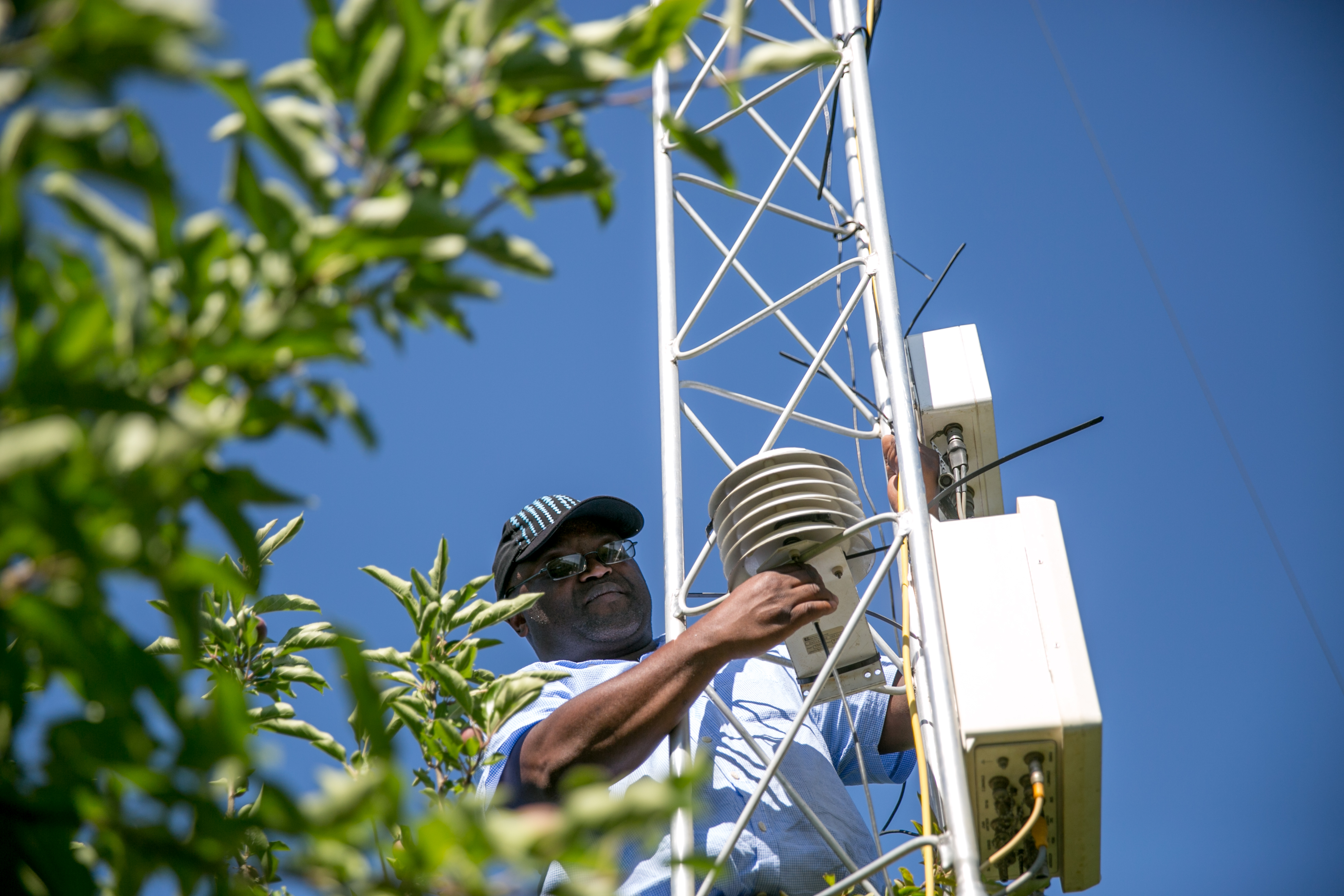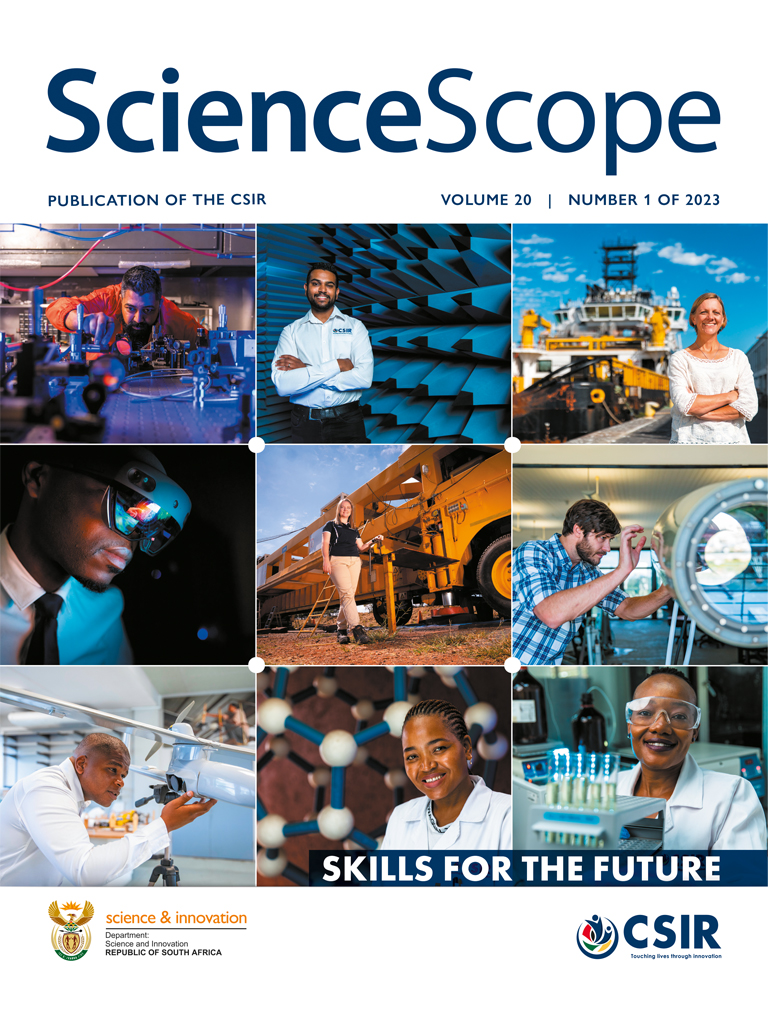Advanced Search
Search Results
The CSIR undertakes research and development for businesses and organisations of all sizes.
Remarks by President Cyril Ramaphosa during a visit at the CSIR Pretoria campus
1. CSIR/DSTI Industrial Biocatalysis Hub Call for Expression of Interest: Product and process development support to enterprises

International research shows that high crop loads are associated with high water demands. However, CSIR senior researcher Dr Sebinasi Dzikiti explains that no information currently exists on the water requirements of high-yielding apple orchards in South Africa and elsewhere. Thus, to support apple growers in a country saddled with water challenges, the CSIR has partnered with the Water Research Commission (WRC), the Agricultural Research Council, the South African Apple and Pear Producers Association represented by Hortgro Science, and the Universities of Stellenbosch and Pretoria to determine the water requirements of fruit trees with a particular focus on apple trees, from planting to full bearing age.
Honourable President, on behalf of South Africa’s public system science system, I wish to thank you once again for accepting our invitation to visit one of the South Africa’s most premier public science and technology institutions - the CSIR.
Mr. President, as you know, the core mandate of the Ministry, and Department of Science, Technology and Innovation (DSTI), is to promote and support South Africa’s national development agenda, as expressed in the National Development Plan (NDP) and the strategic policy priorities set by the 7th Administration. Click here for the full speech.

In this edition of ScienceScope [FlipBook], we feature some of the dynamic individuals of Team CSIR who work in a variety of career types required by a multidisciplinary organisation dedicated to touching lives through innovation.
Download ScienceScope here [pdf]
Watch these careers on video: laser physicist, metallurgist, molecular biologist.
Researchers at the Council for Scientific and Industrial Research (CSIR) have co-authored the recently published South African - National Ecosystem Classification System handbook. This handbook was developed by the South African National Biodiversity Institute (SANBI) as part of its mandate in terms of the National Environmental Management: Biodiversity Act (Act No. 10 of 2004).
Is the Port of Cape Town becoming windier? Answering this question is the task of Khangale Khuthadzo, a young PhD candidate who is dedicated to developing the climatology and providing future projections of the wind field over Cape Town, South Africa. He has transitioned from the northernmost parts of South Africa to the southern tip of the continent to collaborate with a team of CSIR researchers working on understanding the impact of extreme winds on the Port of Cape Town.
Science, technology and innovation are critical to South Africa’s transition to a more circular economy.
In this edition of ScienceScope, read about how the principles of a circular economy – such as designing out waste and pollution, keeping products and materials in use, and regenerating natural systems – are being applied across various sectors of our economy, including agriculture, energy, manufacturing, mining, mobility, settlements and water management.

